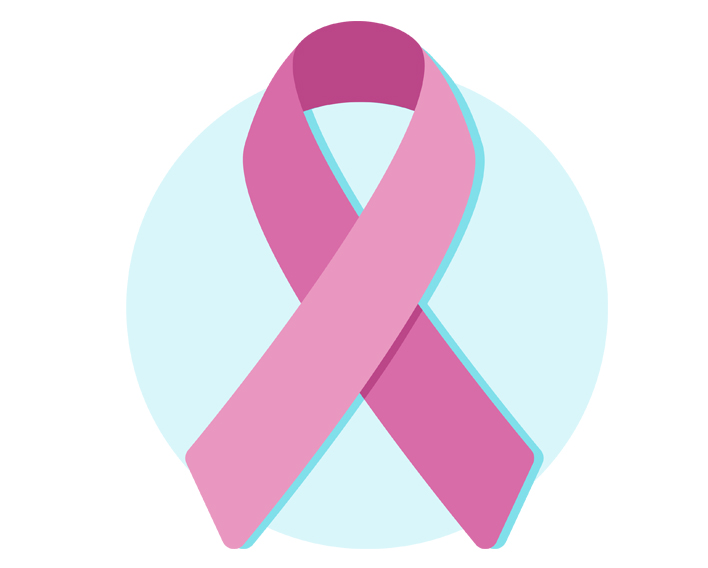Breast Cancer Awareness Month: Essential Information for Every Woman
Produced by:


October is Breast Cancer Awareness Month, so it’s an important time for women and their families to stay informed about breast cancer. Breast cancer is the second most common cancer in women in the United States. About 10% of new cases are in women under age 45. 1
These statistics can be worrisome, but they show why early detection and timely treatment is important. By educating ourselves about risk factors and breast care screenings, we can improve our health management and more effectively address potential health challenges in the future.
Risk Factors:
Getting to know the risk factors for breast cancer is key for early detection and prevention. While some risk factors, such as age, gender breast density and family history are beyond our control, there are many others that can be managed to reduce the risk. Some of them include:
- Physical Activity: Consistent exercise can improve overall mental and physical well-being at any age. For women, regular physical activity is very important in lowering the risk of breast cancer, as those who are not physically active are at a higher risk.2
- Being overweight after menopause: Maintaining a healthy weight during and after Menopause is essential, as older women who are overweight or obese have a higher risk of developing breast cancer compared to those at a healthy weight.3
- Hormone intake: Some forms of hormone replacement therapy (HRT) that include both estrogen and progesterone can increase the risk of breast cancer when used during menopause for more than five years. Additionally, certain oral contraceptives (birth control pills) have also been linked to a higher breast cancer risk.4
- Reproductive history: While family planning is different for everyone, having your first pregnancy after age 30, not breastfeeding or never having a full-term pregnancy can slightly increase breast cancer risk.5
- Drinking alcohol: Studies show that a woman’s risk for breast cancer increases with the amount of alcohol she consumes. In general, consuming large amounts of alcohol is unhealthy, and this is especially true when it comes to breast cancer risk.6
Screening:
In addition to knowing and managing risk factors for breast cancer, screening for breast cancer early is key to a better outcome. One of the most used methods for early detection and prevention is a mammogram.
- What is a mammogram? A mammogram is an x-ray of the breast. Doctors can analyze these images to look for early signs of breast cancer.7 A mammogram won’t prevent breast cancer, but it can aid in early detection.8
- When should I get a mammogram? The U.S. Preventive Services Task Force recommends that women aged 40 to 74 with an average risk for breast cancer have a mammogram every two years. Those with higher risk factors may be advised to start screening at a younger age and to have mammograms more frequently.9
Other experts such as the American Cancer Society have differing recommendations. It is important to talk with your doctor about what is right for you. - Where can I get a mammogram? You can get screened for breast cancer at a clinic, hospital or doctor’s office. To schedule a screening, simply contact your doctor’s office for assistance.
Staying informed about breast cancer risk factors and screening options is essential for early detection and prevention. Understanding how lifestyle choices and medical history can affect your health helps you take proactive steps against breast cancer like getting regular mammograms. If you have concerns or questions, reach out to your health care provider for personalized guidance and support.
——————————————————-
Source:
1 Breast Cancer In Young Women | CDC
2 Breast Cancer Risk Factors | CDC
3 Breast Cancer Risk Factors | CDC
4 Breast Cancer Risk Factors | CDC
5 Breast Cancer Risk Factors | CDC
6 Breast Cancer Risk Factors | CDC
7 About Mammograms | Breast Cancer | CDC
8 Screening for Breast Cancer | CDC
9 Screening for Breast Cancer | CDC
